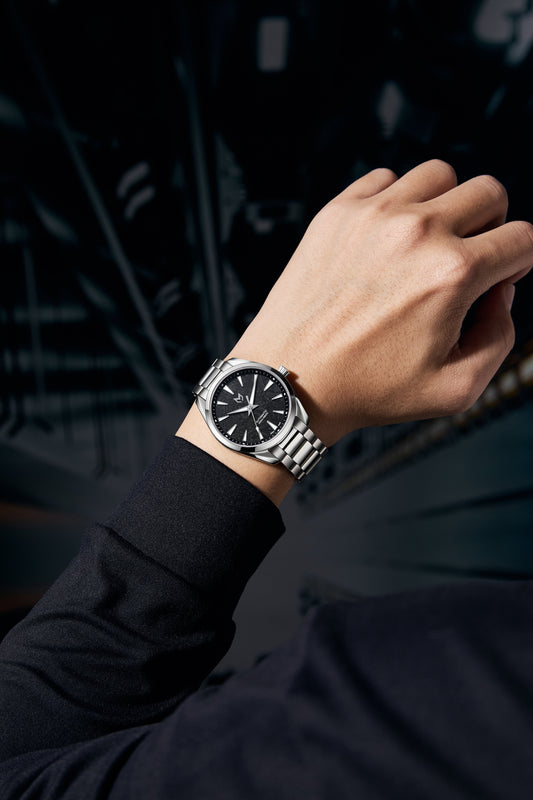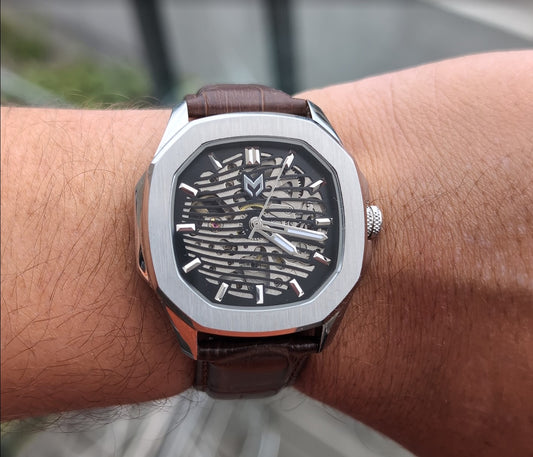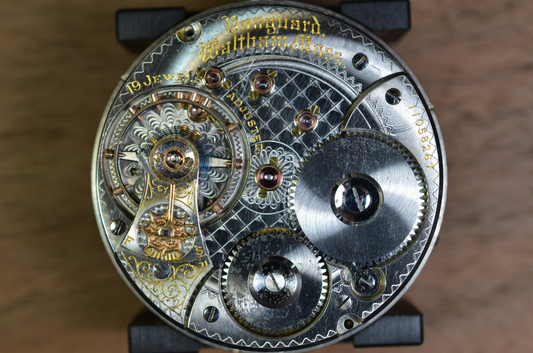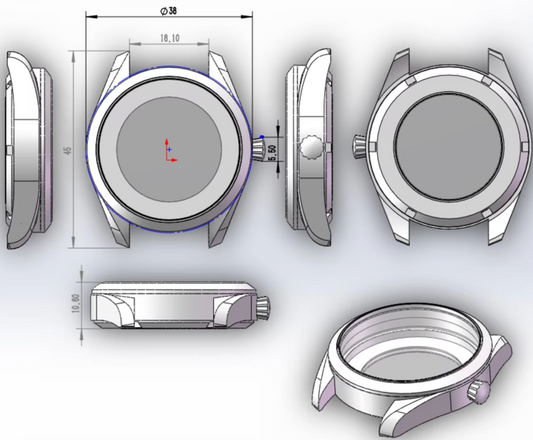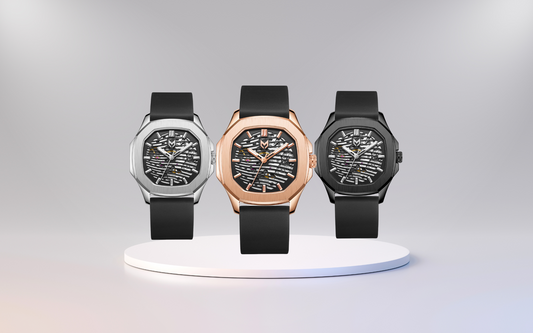
Swiss Movement vs Japanese Movement: Decoding the Heart of Your Watch
Your watch is not just a timekeeping device; it's a testament to precision engineering and craftsmanship. At the heart of every watch lies its movement, the intricate mechanism that powers it. Two nations, Switzerland and Japan, are renowned for producing exceptional movements, but what sets them apart? In this blog post, we delve into the world of watch movements to understand the distinctions between Swiss and Japanese craftsmanship. (Swiss vs Japanese)
The Swiss Movement: Precision Perfected
Swiss watch movements are synonymous with precision and perfection. Crafted in the horological heartland of Switzerland, these movements are known for their meticulous attention to detail and exceptional quality.
- Heritage of Excellence: Swiss watchmaking has a legacy that dates back centuries. The Swiss watch industry has perfected the art of creating precise, reliable, and durable movements.
- Hand-Assembled: Swiss movements are often hand-assembled by skilled watchmakers, ensuring that every piece of the mechanism is in perfect harmony.
- Time-Tested Quality: Swiss movements undergo rigorous testing, with each component carefully checked and tested for accuracy and reliability.
- Innovative Features: Swiss movements are known for their innovative complications, including tourbillons, chronographs, and moon phases.
- Brands with Swiss Movements: Swiss movements are often found in luxury and high-end watches. Brands like Rolex, Patek Philippe, and Omega are celebrated for their Swiss movements.
Japanese Movement: Precision with a Technological Edge
Japanese movements, on the other hand, are celebrated for their technological advancements and precision. Crafted in the Land of the Rising Sun, these movements offer exceptional quality with a touch of innovation.
- Technological Advancements: Japanese movements often incorporate cutting-edge technology and materials, resulting in highly accurate and reliable timekeeping.
- Mass Production: Japanese movements are frequently mass-produced, allowing them to offer quality at a more affordable price point.
- Durability: Japanese movements are built to withstand everyday wear and tear, making them suitable for active lifestyles.
- Brands with Japanese Movements: Brands like Seiko, Citizen, and Casio are well-known for their Japanese movements. They cater to a wide range of consumers, from affordable to high-end options.
Which Movement Is Right for You?
The choice between Swiss and Japanese movements ultimately depends on your preferences and requirements. If you value heritage, intricate craftsmanship, and innovative complications, a Swiss movement may be your choice. On the other hand, if you appreciate technological precision and affordability, a Japanese movement might be more suitable.
In either case, you'll find that MAKT Watches, with its commitment to excellence, offers quality movements in its timepieces. This diversity ensures that you can find a watch that not only suits your style but also meets your standards for quality and precision.
In conclusion, whether you opt for Swiss or Japanese movement, both have their unique strengths, and both are capable of delivering reliable and accurate timekeeping. It's a matter of personal preference and the story you want your watch to tell. With MAKT Watches, you can choose the movement that aligns with your ethos and embrace the art of precision on your wrist.

